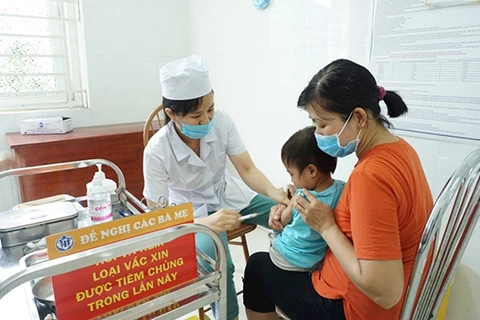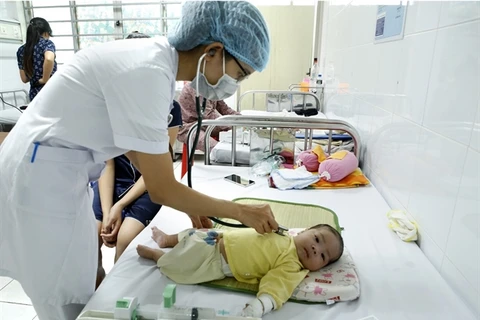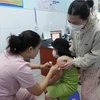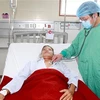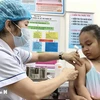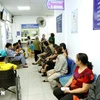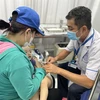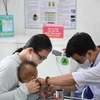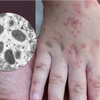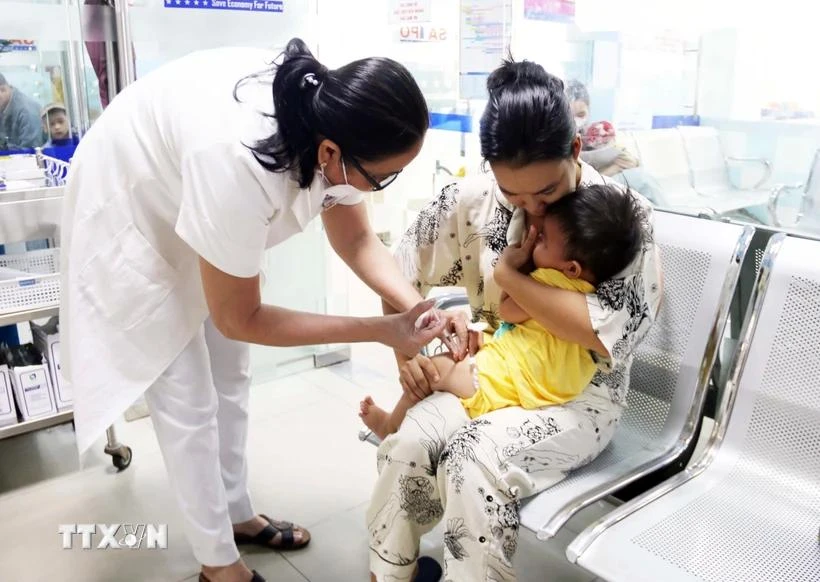
Hanoi (VNA) – The Ministry of Health, in collaboration with the World Health Organisation (WHO) and UNICEF, on August 22 launched a campaign to provide 1,134,200 doses of vaccine against measles, funded by the Australian Government, for Vietnamese children in 2024, given the risk of a measles outbreak in the world, including Vietnam.
This move aimed to respond to the World Immunisation Week 2024.
The ministry’s statistics show that Vietnam has recorded over 2,000 cases of measles since the beginning of this year, with more than 500 cases reported in Ho Chi Minh City.
Speaking at the event, Health Minister Dao Hong Lan called on parents and caregivers to get children vaccinated fully and on schedule, for the health of the children through regular vaccination campaigns.
Vaccination is one of the most important measures to prevent dangerous infectious diseases, controlling or eliminating many dangerous infectious diseases. It is estimated that the global Expanded Programme on Immunisation (EPI) prevents two to three million deaths each year, said Lan.
The campaign will be carried out at educational units and medical facilities in 100 districts in 18 localities at risk of measles outbreaks. Vaccines are provided free of charge for children aged one to ten, along with medical staff at risk at facilities and those who have not had the required number of vaccinations as prescribed.
According to the minister, the vaccination programme still faces challenges due to the unpredictable situation of infectious diseases and the low vaccination rate following the COVID-19 pandemic. Environmental pollution, climate change, natural disasters, floods and urbanisation created favourable conditions for infectious diseases to reappear and spread.
Lan suggested the People's Committees of cities and provinces promote the implementation of regular vaccination for children under the EPI to ensure safety and effectiveness and encourage families to get their children vaccinated fully and on schedule.

WHO Vietnam Representative Angela Pratt remarked that hundreds of thousands of children in Vietnam have missed out on vaccinations since 2021 due to pandemic-related disruptions. The recent lack of vaccine stock has led to the largest sustained decline in rates of childhood immunisation in Vietnam in over 20 years.
“As a result, we are already seeing more cases and clusters of vaccine-preventable diseases – including diphtheria and pertussis and we are worried that we currently face the very real risk of a large-scale measles outbreak,” said Pratt.
The WHO representative also praised the Prime Minister’s office, the National Assembly and the Minister of Health for the leadership and immense efforts last year to unlock the supply of vaccines.
“I know we can now count on the same leadership and commitment to respond to the measles outbreaks we are currently seeing in several provinces, and in doing so avoid large-scale transmission.”
Pratt also said that the WHO has finalised the procurement of an emergency supply of more than one million doses of measles-rubella vaccines, to be used for outbreak response and supplementary immunisation activities in the highest-risk areas.
In Vietnam, there are currently 11 types of vaccines to prevent infectious diseases, including tuberculosis, diphtheria, whooping cough, tetanus, measles, polio, hepatitis B, Japanese B encephalitis, rubella, and rotavirus, all deployed in EPI.
In the future, the health ministry will implement a plan to add new vaccines to the EPI. These include vaccines to prevent diarrhea caused by the rotavirus, a vaccine to prevent pneumococcal disease, and a vaccine to prevent cervical cancer caused by the HPV virus.
Over the past 40 years, hundreds of millions of vaccine doses have been given to Vietnamese children and women for free. The EPI has made an important contribution to achieving polio eradication in 2000 and eliminating neonatal tetanus in 2005./.
